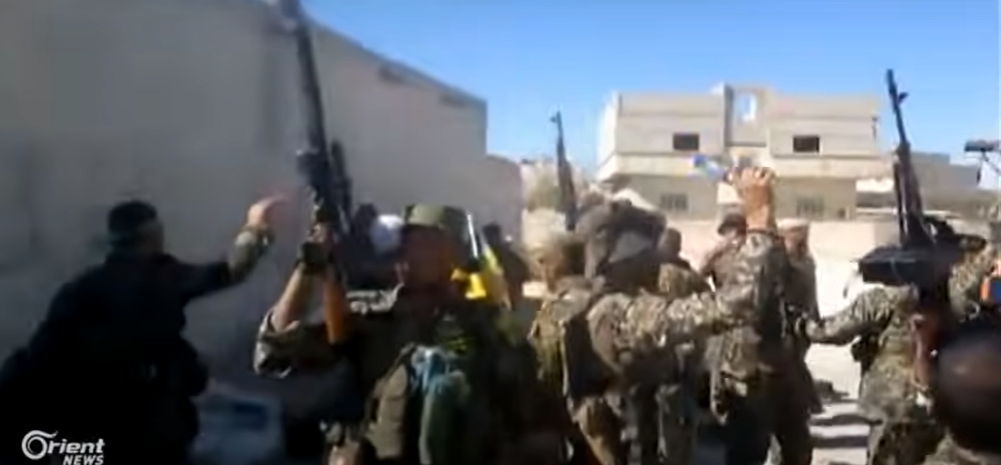Iran continues its war of attrition against Israel, employing its proxies across the Middle East.
On October 29, the Israeli Air Force conducted an operation against rocket launchers in Syrian territory, which had been used to fire rockets at Israel.
Four rockets were launched from Syria, landing in open areas in Israel. In retaliation, the Israeli Air Force struck targets in the Daraa region.
Syrian opposition sources reported that these attacks on Israel were carried out by militias loyal to Iran.
These militias, stationed in Iraq and Syria, have recently escalated their attacks on U.S. military bases in these countries using rockets and drones.
During these attacks, 29 Americans were injured. In response, on October 27, the United States targeted two facilities in eastern Syria used by the Iranian “Revolutionary Guards” and associated groups.
Muhammad al-Sudani, the Prime Minister of Iraq, held several meetings with leaders of the Islamic resistance in Iraq in an attempt to halt the attacks on U.S. soldiers.
He also warned them against the possibility of the U.S. resorting to targeted killings of militia leaders.
The presence of pro-Iranian militias in Syria is not a recent development; they entered Syria at the behest of Iran in 2011 to support President Bashar Assad’s war against Syrian opposition organizations during the civil war.
Initially, their actions were restricted by Iran to refrain from attacking Israel.
However, in response to hostilities originating from the Gaza Strip, Israel conducted airstrikes on these militias at Damascus and Aleppo airports, citing security concerns.
Foreign sources have claimed that Iran attempted to deliver advanced weapons to these militias by air for potential attacks on Israel.
U.S. Secretary of State Tony Blinken called on Iraqi Prime Minister Mohammad Al-Sudani to prosecute those responsible for launching rockets and drones at American bases.
The Iraqi government issued a statement condemning the attacks on foreign forces’ bases assisting Iraq in the fight against ISIS.
In contrast to the pro-Iranian militias, forces loyal to Iraq’s Shiite Imam Muqtada Sader have called for organized, unarmed mass marches toward the borders of “Palestine” from Jordan, Syria, Egypt, and Lebanon.
Approximately seven thousand Shia protesters from Iraq have reached the border with Jordan and are demanding entry into Jordan’s territory to reach the Israeli border.
In response, the Jordanian army has increased its presence along the border with Iraq.
The Israeli security establishment estimates that as it prepares for an extensive ground operation in the Gaza Strip to overthrow Hamas’s rule and destroy its military infrastructure, Iran will instruct Shiite militias to escalate rocket and drone attacks on Israel.
Notably, last week, the Houthi rebels in Yemen also launched missiles and drones toward Israel.
This multi-front aggression against Israel, during the “Iron Swords” operation, aligns with Iran’s strategy of “Unification of Fronts.”
While Israel is currently focused on its primary objective of toppling the Hamas regime in the Gaza Strip, it also responds militarily to threats from various fronts.
Senior Israeli political officials assert that Iran will face consequences in due course for activating its affiliates against Israel.




